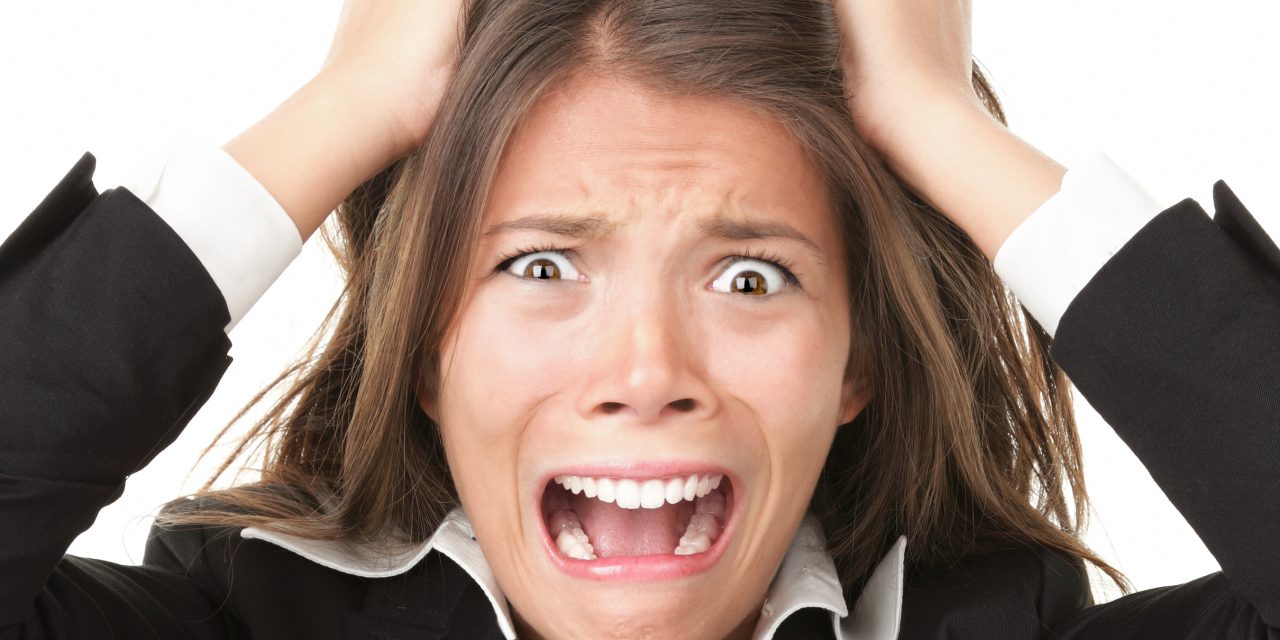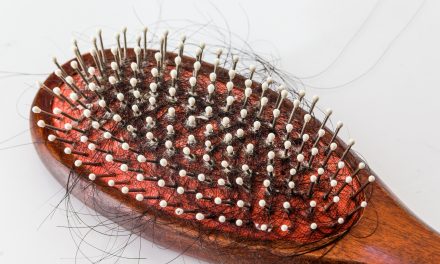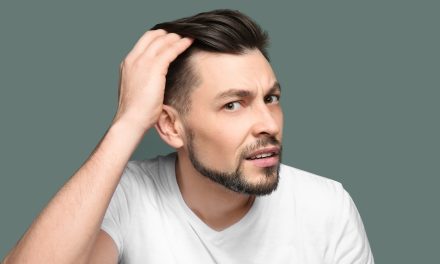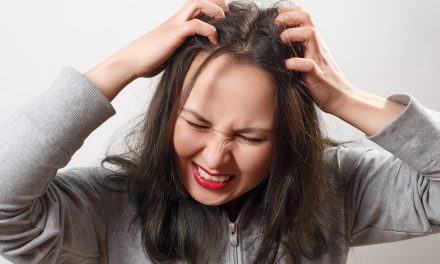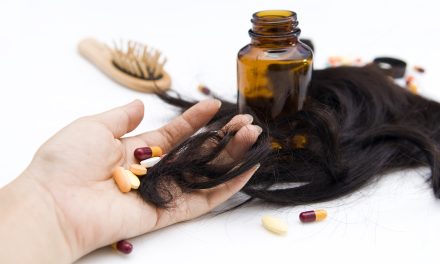Stress is a common part of daily life, but can it really cause hair loss?
Hair loss is influenced by various factors, and stress is indeed one of them. Stress can lead to hair conditions like telogen effluvium, where hair follicles enter a resting phase, resulting in noticeable thinning and shedding.
This type of stress-related hair loss can often be temporary once the source of stress is managed.
People often underestimate the link between prolonged stress and hair health.
Many individuals experience increased shedding during times of anxiety.
Chronic stress can disrupt the normal hair growth cycle, leading to visible changes over time.
Addressing both physical and emotional health is crucial for maintaining healthy hair.
Preventive measures, including a balanced diet and effective stress management, play a role in supporting hair growth.
Proper care and attention to mental well-being can help reduce the impact of stress on hair.
Key Takeaways
- Stress can cause hair loss like telogen effluvium.
- Managing stress and nutrition supports hair health.
- Treatment and stress reduction can improve hair growth.
Understanding Hair Loss
Hair loss can be a significant concern, influenced by various factors and processes. It is essential to comprehend the hair growth cycle and recognize the common types of hair loss to understand its complexities.
Hair Growth Cycle
Hair grows in cycles, which include the anagen, catagen, and telogen phases.
The anagen phase is the growth period, lasting between 2-7 years, and determines hair length. During this time, hair follicles are most active.
Next is the catagen phase, a short transitional period of about 2-3 weeks. This phase signals the end of active growth as hair follicles shrink.
Finally, the telogen phase lasts around 3-4 months. It is a resting phase where hair shedding occurs, making room for new hair to grow.
Disruptions in this cycle can lead to hair loss and thinning.
Common Types of Hair Loss
There are several common types of hair loss.
Androgenetic alopecia, or male and female pattern baldness, is a hereditary condition linked to hormones. It’s often seen in older individuals but can start in the teenage years.
Such systemic causes of hair loss can also include stress or medical conditions.
Another type is alopecia areata, where the immune system attacks hair follicles, leading to patchy hair loss.
Telogen effluvium is often triggered by stress or a major life event, pushing hair into the telogen phase prematurely. Recognizing these types could help pinpoint the cause of hair loss and guide treatment options.
The Role of Stress in Hair Loss
Stress can significantly impact hair health.
While stress is commonly linked to hair loss, understanding the specifics can help in managing it better.
Stress affects hair follicles, leading to conditions like telogen effluvium. There are different types, such as acute telogen effluvium and chronic stress-related loss.
How Stress Affects the Hair Follicle
Stress impacts the hair follicle by triggering certain hormones.
One such hormone is cortisol, which is released in higher amounts during stressful times. This hormone can lead to the shrinking and weakening of hair follicles.
When hair follicles are weakened, they enter a resting phase known as telogen, which can increase shedding.
Another hormone, corticosterone, may also affect hair follicles.
When the body is under stress, these hormonal changes disrupt the normal growth cycle. Instead of growing, more hair enters the resting phase. This significantly contributes to stress-induced hair loss.
Types of Stress-Related Hair Loss
Stress-related hair loss is often seen as telogen effluvium.
This condition occurs when stress pushes a large number of follicles into the resting phase. After a few months, hair starts to fall out when combed or washed.
This type of hair loss is usually temporary and can be reversed once stress is managed.
Acute telogen effluvium happens suddenly and occurs after a shock or trauma. On the other hand, chronic stress can lead to ongoing hair loss issues.
Managing stress effectively can help in reducing its impact on hair health. It’s essential to identify which type of stress-induced loss is occurring to address it appropriately.
Table: Hormones Involved in Stress-Related Hair Loss
| Hormone | Effect on Hair Follicle |
|---|---|
| Cortisol | Leads to shrinking and weakening of hair follicles |
| Corticosterone | Disrupts normal hair growth cycle |
Psychological Factors and Hair Health
Psychological factors like stress can affect hair health, causing potential issues such as hair loss.
Conditions like trichotillomania arise from psychological triggers, and emotional stress may also influence hair growth cycles, leading to thinning or shedding.
Trichotillomania and Hair Pulling
Trichotillomania is a condition characterized by an uncontrollable urge to pull out one’s hair. This condition often stems from emotional stress and anxiety.
Those affected may pull hair from the scalp, eyebrows, or other body areas. People with trichotillomania often describe feeling a sense of relief or satisfaction after pulling hair.
The urge usually intensifies during times of stress or boredom, making it hard to manage without psychological intervention.
Treatments like cognitive-behavioral therapy (CBT) have shown promise, helping individuals reduce hair-pulling behavior. Awareness and understanding of triggers can also aid in managing the condition effectively.
Impact of Depression and Anxiety
Depression and anxiety significantly contribute to hair health issues.
Emotional stress from these conditions can disrupt the hair growth cycle, leading to increased shedding or hair loss.
Stress hormones may trigger a condition known as telogen effluvium, where hair prematurely enters the resting phase and falls out.
People experiencing this often notice a large amount of hair falling out after stressful events.
Managing stress through relaxation techniques and professional help can mitigate these effects. A study suggests that addressing underlying psychological health is crucial in overcoming hair loss triggers. Understanding the links between mental health and hair ensures better management of hair-related problems.
Nutrition and Hair Well-Being
Nutrition plays a crucial role in maintaining healthy hair and promoting hair growth. Deficiencies in key nutrients can lead to hair loss and affect its overall appearance and health.
Essential Nutrients for Hair Growth
Proteins, vitamins, and minerals are vital for hair growth.
Protein, particularly keratin, is a building block of hair. Without adequate protein intake, hair becomes weak and more prone to breakage.
Biotin, a B vitamin, supports hair regrowth and strengthens strands. Other crucial vitamins include Vitamin D, which helps stimulate hair follicles, and Vitamin E, known for its antioxidant properties that protect hair from damage.
Minerals such as zinc and iron are essential, too. Zinc keeps the oil glands around follicles working properly, while iron ensures a good supply of oxygen to hair roots.
Including a balanced intake of these nutrients through foods like lean meats, fish, nuts, and leafy greens can promote healthy hair.
The Effects of Malnutrition
Malnutrition can directly impact hair health.
When the body lacks essential nutrients, hair growth may slow down, and existing hair can become dry and brittle. Conditions like anemia, caused by iron deficiency, can lead to significant hair loss.
Additionally, a lack of proteins and vitamins like biotin and vitamin D can contribute to hair thinning and loss.
Stress can also exacerbate these effects, making it important to maintain a balanced diet.
Nutritional disorders may lead to temporary or even long-term hair loss, underscoring the importance of a healthy diet.
Individuals facing hair issues should assess their dietary habits and consider if nutritional gaps could be contributing to their hair problems.
Medical Conditions and Medications
Hair loss can arise from a range of medical conditions and medications. Autoimmune diseases can cause hair loss, as well as certain medications that may lead to notable thinning or shedding.
Alopecia and Autoimmune Disease
Alopecia, particularly alopecia areata, is a condition where the immune system attacks hair follicles. This causes patches of hair loss on the scalp. It is classified as an autoimmune disease.
Other autoimmune conditions like lupus can also lead to hair thinning. The immune system’s attack on healthy cells disrupts hair growth, often resulting in sudden hair loss.
Treatment typically focuses on managing immune response, often involving topical treatments or corticosteroids to curb inflammation.
Medications Leading to Hair Loss
Many medications can be linked to hair loss.
Chemotherapy drugs are widely recognized for causing significant hair thinning because they target rapidly dividing cells, including hair follicles.
Other medications known to cause hair loss include blood thinners, certain blood pressure medications, and antidepressants. These drugs can trigger a condition known as telogen effluvium, where hair prematurely enters the shedding phase.
Adjusting medication usage under medical supervision can sometimes alleviate this effect and allow hair to regrow.
Hair Loss Treatments and Management
Managing hair loss effectively often involves a combination of pharmaceutical treatments, topical solutions, and alternative approaches. Each method addresses different aspects of hair health, offering various benefits and levels of effectiveness.
Pharmaceutical Options
Pharmaceutical treatments for hair loss often focus on regulating hormones or enhancing follicle activity.
Finasteride is a popular option that decreases levels of DHT, a hormone linked to hair loss, but it may carry side effects.
Corticosteroids are sometimes prescribed to treat hair loss due to inflammation.
These medications help by suppressing the immune response that attacks hair follicles. For women, spironolactone is also used to address hormonal imbalances. Each option requires consultation with a healthcare provider to tailor solutions to individual needs.
Topical Treatments and Minoxidil
Topical treatments are widely used for their localized effects.
Minoxidil is one of the most recognized topical solutions. It helps stimulate blood flow to hair follicles, which can encourage hair growth in individuals with pattern baldness.
Available as a foam or liquid, minoxidil is applied directly to the scalp and can be used by both men and women.
Topical corticosteroids are used to treat conditions like alopecia areata by reducing inflammation. Results may vary based on the condition and consistency in application.
Alternative Approaches
For those seeking natural options, some choose alternative treatments.
Nutritional supplements and herbal remedies, like saw palmetto or essential oils, are sometimes used for supporting hair health.
Laser therapy is another alternative that uses low-level lasers to stimulate hair follicles. While considered safe, the effectiveness varies and requires consistent use.
Consulting a professional can help determine which alternative therapies may best suit individual needs and complement other treatments.
Prevention and Stress Management
Stress can contribute to hair loss and thinning, but managing stress effectively can help mitigate these effects. Adopting lifestyle changes and practicing mindfulness are key strategies for managing stress-related hair loss.
Lifestyle Changes and Exercise
Regular exercise plays a crucial role in stress management and can help prevent stress-related hair loss.
Physical activity reduces stress hormones and increases endorphins, making one feel better. Engaging in activities like jogging, swimming, or yoga can improve blood flow to the scalp, promoting hair health.
A balanced diet rich in vitamins and minerals supports hair growth and overall well-being.
Foods like leafy greens, nuts, seeds, and lean proteins provide essential nutrients.
Maintaining good sleep hygiene is also vital, as restorative sleep aids in stress reduction and supports healthy hair growth.
Mindfulness and Relaxation Techniques
Practicing mindfulness and relaxation can effectively manage stress and its impact on hair loss.
Techniques like meditation and breathing exercises help calm the mind and relieve stress. Consistently practicing these methods can lower stress levels and minimize stress-related hair thinning.
Engaging in activities like progressive muscle relaxation or guided imagery can further enhance relaxation.
These techniques encourage individuals to focus on body awareness and visualization, contributing to a reduction in overall stress.
Creating a peaceful environment and setting aside time daily for these practices can support mental and physical well-being.
Frequently Asked Questions
Stress can lead to hair loss, often presenting as diffuse thinning or patchy loss.
Recovery involves both lifestyle changes and sometimes supplements. Identifying symptoms early can be crucial for effective treatment.
How can one recover from stress-induced hair loss?
Recovery from stress-induced hair loss often involves reducing stress through techniques like meditation, exercise, and therapy.
Eating a balanced diet and maintaining a healthy lifestyle also support hair health and reduce further loss.
Which vitamins are beneficial for treating hair loss attributed to stress?
Vitamins like Biotin, Vitamin D, and Vitamin E are commonly associated with improving hair health.
These nutrients can help strengthen hair follicles and improve hair growth, especially when stress is a contributing factor.
What are the typical symptoms of hair loss caused by stress?
Symptoms often include a noticeable thinning of hair, increased hair shedding, and patches of hair loss.
This type of hair loss can sometimes resolve itself as stress levels decrease.
Is there a correlation between stress, anxiety, and hair loss?
Yes, there is a clear link between stress, anxiety, and hair loss.
Conditions like Telogen Effluvium can be triggered by stress, leading to more hairs entering the shedding phase.
In what way does stress-related hair loss manifest in appearance?
Stress-related hair loss usually appears as diffuse thinning across the scalp.
Hair might look less dense and thinner, with significant hair fall during brushing or washing.
Does hair lost to stress eventually regrow?
Hair lost due to stress often regrows once the stress is managed and reduced.
It may take several months for hair to regain its previous volume, but regrowth is possible with proper care and stress management strategies.

